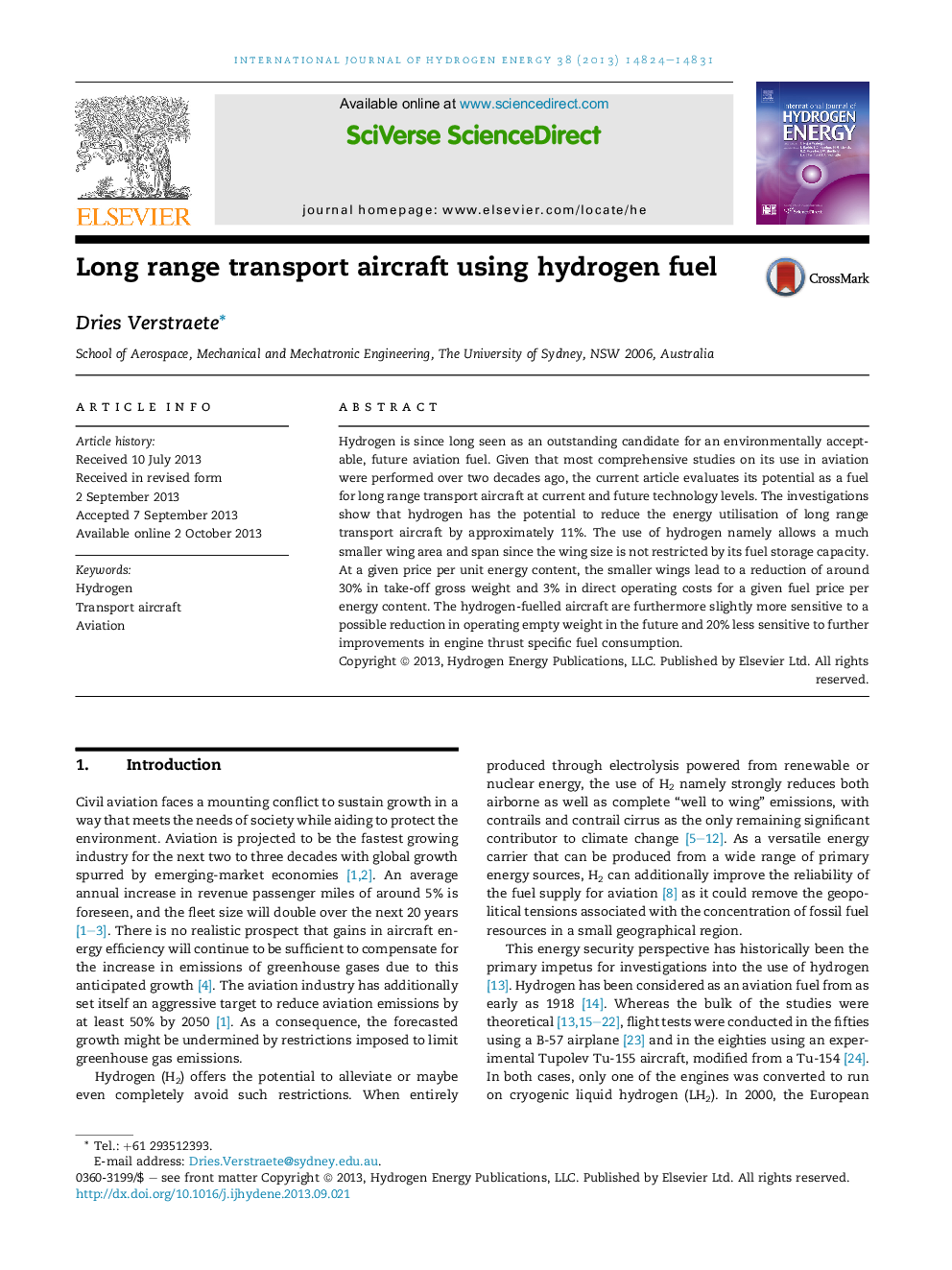| Article ID | Journal | Published Year | Pages | File Type |
|---|---|---|---|---|
| 7721477 | International Journal of Hydrogen Energy | 2013 | 8 Pages |
Abstract
Hydrogen is since long seen as an outstanding candidate for an environmentally acceptable, future aviation fuel. Given that most comprehensive studies on its use in aviation were performed over two decades ago, the current article evaluates its potential as a fuel for long range transport aircraft at current and future technology levels. The investigations show that hydrogen has the potential to reduce the energy utilisation of long range transport aircraft by approximately 11%. The use of hydrogen namely allows a much smaller wing area and span since the wing size is not restricted by its fuel storage capacity. At a given price per unit energy content, the smaller wings lead to a reduction of around 30% in take-off gross weight and 3% in direct operating costs for a given fuel price per energy content. The hydrogen-fuelled aircraft are furthermore slightly more sensitive to a possible reduction in operating empty weight in the future and 20% less sensitive to further improvements in engine thrust specific fuel consumption.
Keywords
Related Topics
Physical Sciences and Engineering
Chemistry
Electrochemistry
Authors
Dries Verstraete,
